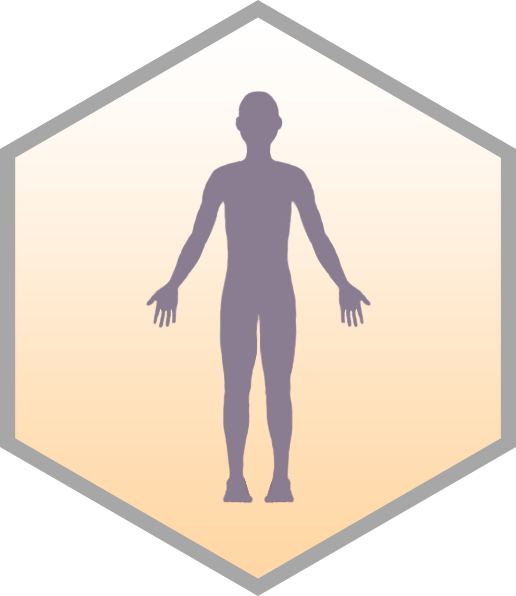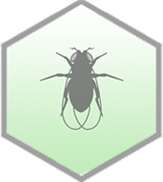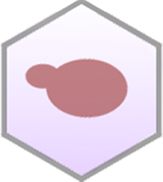BUR6 / YER159C Overview
- Standard Name
- BUR6 1
- Systematic Name
- YER159C
- SGD ID
- SGD:S000000961
- Aliases
- NCB1 6
- Feature Type
- ORF , Verified
- Description
- Subunit of a heterodimeric NC2 transcription regulator complex; complex binds to TBP and can repress transcription by preventing preinitiation complex assembly or stimulate activated transcription; homologous to human NC2alpha; complex also includes Ncb2p; bur6 ncb2 double mutation is functionally complemented by coexpression of human DRAP1 and DR1, although the single bur6 mutation is not complemented by its ortholog DRAP1 2 3 4 5
- Name Description
- Bypass UAS Requirement 1
- Comparative Info
-







Sequence
The S. cerevisiae Reference Genome sequence is derived from laboratory strain S288C. Download DNA or protein sequence, view genomic context and coordinates. Click "Sequence Details" to view all sequence information for this locus, including that for other strains.
Analyze Sequence
S288C only
BLASTN | BLASTP | Design Primers | Restriction Fragment Map | Restriction Fragment Sizes | Six-Frame Translation
S288C vs. other species
BLASTN vs. fungi | BLASTP at NCBI | BLASTP vs. fungi
S288C vs. other strains
Protein
Basic sequence-derived (length, molecular weight, isoelectric point) and experimentally-determined (median abundance, median absolute deviation) protein information. Click "Protein Details" for further information about the protein such as half-life, abundance, domains, domains shared with other proteins, protein sequence retrieval for various strains, physico-chemical properties, protein modification sites, and external identifiers for the protein.
- Length (a.a.)
- 142
- Mol. Weight (Da)
- 15511.8
- Isoelectric Point
- 4.84
- Median Abundance (molecules/cell)
- 4971 +/- 922
- Half-life (hr)
- 7.0
Alleles
Curated mutant alleles for the specified gene, listed alphabetically. Click on the allele name to open the allele page. Click "SGD search" to view all alleles in search results.
View all BUR6 alleles in SGD search
Gene Ontology
GO Annotations consist of four mandatory components: a gene product, a term from one of the three Gene Ontology (GO) controlled vocabularies (Molecular Function, Biological Process, and Cellular Component), a reference, and an evidence code. SGD has manually curated and high-throughput GO Annotations, both derived from the literature, as well as computational, or predicted, annotations. Click "Gene Ontology Details" to view all GO information and evidence for this locus as well as biological processes it shares with other genes.
- Summary
- Promoter-binding RNA polymerase II transcription factor that binds TATA-binding protein and participates in preinitiation complex assembly; subunit of the heterodimeric negative cofactor 2 complex
View computational annotations
Molecular Function
- Manually Curated
- enables chromatin binding (IDA)
- enables core promoter sequence-specific DNA binding (IDA)
- contributes to TBP-class protein binding (IPI)
- enables transcription coactivator activity (IDA)
- enables transcription corepressor activity (IGI, IDA, IMP)
Biological Process
- Manually Curated
- involved in cellular response to heat (IMP)
- involved in negative regulation of transcription by RNA polymerase II (IDA, IGI, IMP)
- involved in positive regulation of transcription by RNA polymerase II (IMP, IDA)
- involved in RNA polymerase II preinitiation complex assembly (IMP)
Cellular Component
- Manually Curated
- part of negative cofactor 2 complex (IPI, IDA)
Complex
Macromolecular complex annotations are imported from the Complex Portal. These annotations have been derived from physical molecular interaction evidence extracted from the literature and cross-referenced in the entry, or by curator inference from information on homologs in closely related species or by inference from scientific background.
Phenotype
Phenotype annotations for a gene are curated single mutant phenotypes that require an observable (e.g., "cell shape"), a qualifier (e.g., "abnormal"), a mutant type (e.g., null), strain background, and a reference. In addition, annotations are classified as classical genetics or high-throughput (e.g., large scale survey, systematic mutation set). Whenever possible, allele information and additional details are provided. Click "Phenotype Details" to view all phenotype annotations and evidence for this locus as well as phenotypes it shares with other genes.
- Summary
- Essential gene; viable but slow-growing under anaerobic conditions; conditional alleles confer sensitivity to cold; reduced function increases competitive fitness
Classical Genetics
- null
- unspecified
- conditional
- null
- reduction of function
- conditional
Large-scale Survey
Interaction
Interaction annotations are curated by BioGRID and include physical or genetic interactions observed between at least two genes. An interaction annotation is composed of the interaction type, name of the interactor, assay type (e.g., Two-Hybrid), annotation type (e.g., manual or high-throughput), and a reference, as well as other experimental details. Click "Interaction Details" to view all interaction annotations and evidence for this locus, including an interaction visualization.
405 total interactions for 352 unique genes
Physical Interactions
- Affinity Capture-MS: 14
- Affinity Capture-RNA: 8
- Affinity Capture-Western: 10
- Co-localization: 6
- PCA: 2
- Reconstituted Complex: 1
- Two-hybrid: 1
Genetic Interactions
- Dosage Rescue: 4
- Negative Genetic: 231
- Phenotypic Enhancement: 4
- Phenotypic Suppression: 2
- Positive Genetic: 72
- Synthetic Growth Defect: 8
- Synthetic Lethality: 10
- Synthetic Rescue: 32
Regulation
The number of putative Regulators (genes that regulate it) and Targets (genes it regulates) for the given locus, based on experimental evidence. This evidence includes data generated through high-throughput techniques. Click "Regulation Details" to view all regulation annotations, shared GO enrichment among regulation Targets, and a regulator/target diagram for the locus.
- Summary
- BUR6 and NCB2 encode subunits of the evolutionarily-conserved heterodimeric transcription regulator complex NC2 (Negative Cofactor 2), which is a global transcriptional repressor that controls TATA-binding protein (TBP) distribution and activity. NC2 binds TBP-DNA complexes, altering their conformation and forming the NC2-TBP-DNA complex, which resembles a clamp encircling DNA that can slide along DNA away from TATA boxes. NC2 blocks assembly of the preinitiation complex (PIC) subsequent to TBP-DNA binding, by actively removing TBP from the TATA element and allowing relocalization of TBP along DNA. NC2 can exert positive or negative effects on transcription complex assembly depending on the presence or absence of specific core promoter elements. NC2 represses TATA-containing promoters by blocking TFIIA and TFIIB from associating with the TBP-TATA complex. NC2 activates promoters lacking TATA elements by transiently stabilizing weak TBP-DNA interactions or by funneling TBP to core promoters by catalyzing diffusion along DNA. NC2 can also have a positive role in transcription by removing non-productive transcriptionally inactive TBP complexes from DNA, allowing functional PICs to form. NC2 shows correlation between promoter occupancy and transcription activity, and is found at the most active promoters. The NC2alpha subunit (Bur6p) appears to prefer TATA-box containing promoters, while the NC2beta subunit (Ncb2p) shows higher occupancy at TATA-less promoters.
Expression
Expression data are derived from records contained in the Gene Expression Omnibus (GEO), and are first log2 transformed and normalized. Referenced datasets may contain one or more condition(s), and as a result there may be a greater number of conditions than datasets represented in a single clickable histogram bar. The histogram division at 0.0 separates the down-regulated (green) conditions and datasets from those that are up-regulated (red). Click "Expression Details" to view all expression annotations and details for this locus, including a visualization of genes that share a similar expression pattern.
Literature
All manually curated literature for the specified gene, organized into topics according to their relevance to the gene (Primary Literature, Additional Literature, or Review). Click "Literature Details" to view all literature information for this locus, including shared literature between genes.